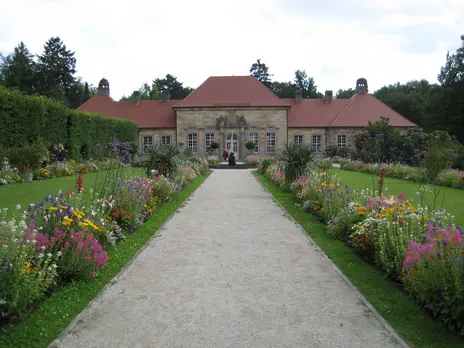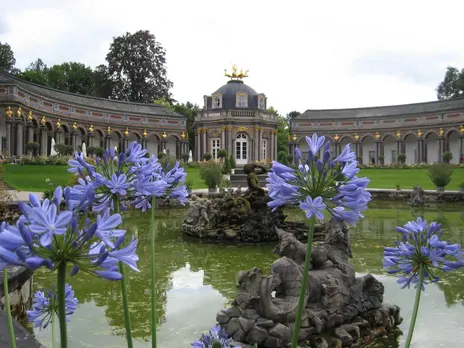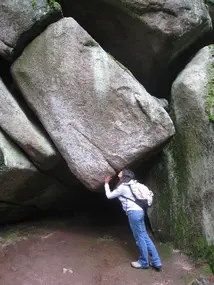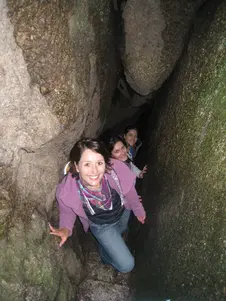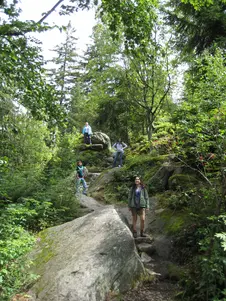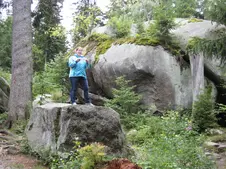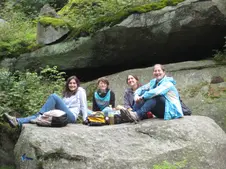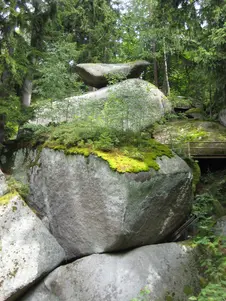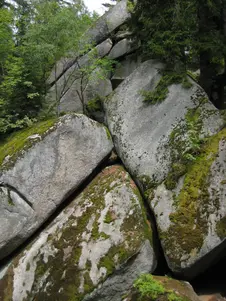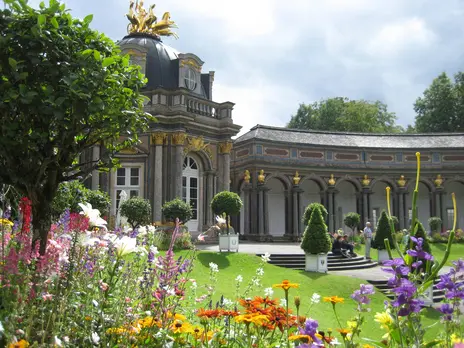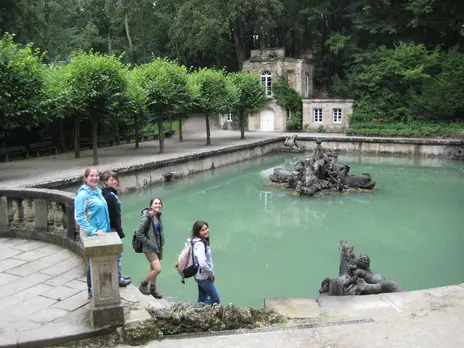“Go inside a stone
That would be my way.”
(Charles Simic)
On Friday 22nd July, a group of students under the tutorage of Susan Brähler ventured on a Romantic excursion to the Felsengarten Luisenburg near Wunsiedel.
In addition to discussing Romantic concepts and poetry in the Proseminar “Romantic Poetry: The Real Language of Men”, we followed William Wordsworth’s advice and went forth into the light of things to let nature be our teacher for the day.
We climbed up the hill where Goethe had strayed more than 200 years ago. Sometimes we had to clamber under or over rocks because they lay in the way, or rather because the way led through them.
Standing on top of the hill, restaging the observer of the observer while enjoying the view, experiencing the beautiful, the picturesque and the sublime and feeling resuscitated from the healthy exercise, it was easy for us to understand why the poets of the Romantic Age were drawn into nature and why it was such an issue for them.
We had lunch in form of a picnic sitting on a flat rock, the same we later used as a stage to recite a variety of stone poems from, delighted by their “casual simplicity” (Emily Dickinson).
As a contrast, we afterwards visited the Eremitage in Bayreuth, a combination of French and English landscape gardening. In comparison, the Felsengarten seemed even wilder and more remote from cultivated land. While we could appreciate the picturesque of the grounds, we all agreed that the sublime of the Felsengarten had moved us more.
One key feature of the Romantic Period, however, we did not include in our excursion: even though the solitary traveller is a prominent Romantic concept, we preferred to walk in each other’s company.
This excursion showed how well teaching and the experience of nature can be combined, especially in the case of Romantic Poetry. Recollected in tranquillity, the trip was an agreeable and enriching conclusion of a term of studying English Romantic Poetry.
by Ricarda Edelthalhammer
